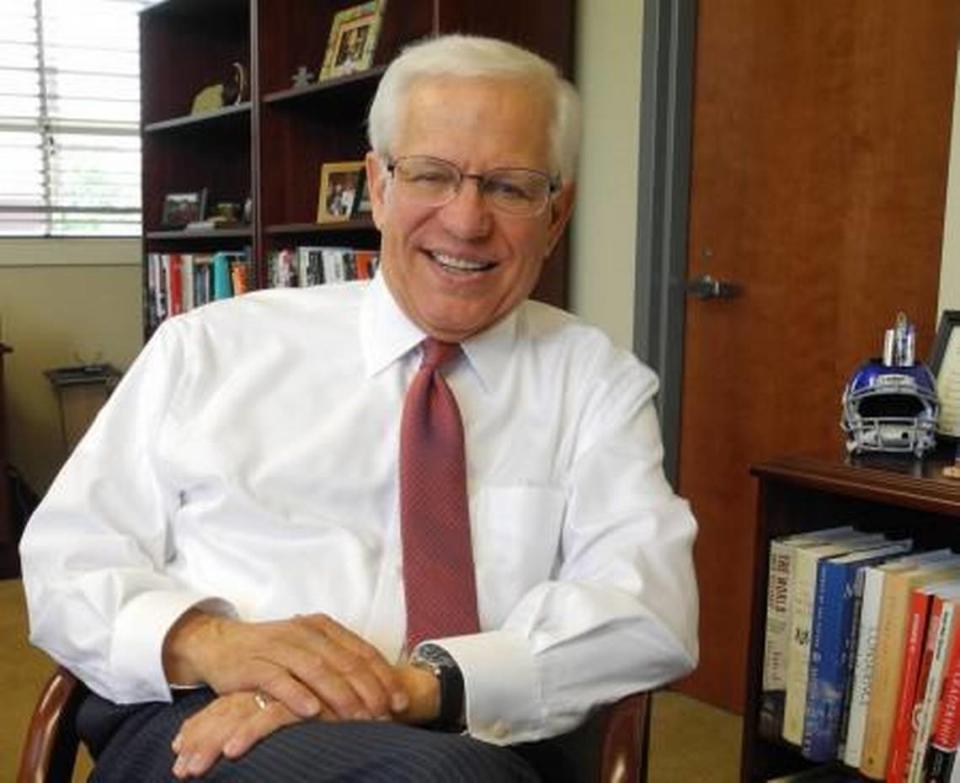Coming soon: King Kroger’s capture and decapitation plan for a grocery store near you | Opinion
It’s not often I find reason to return to a previous column and follow up based on new information, but the so-called Kroger/Albertson merger merits a second look. First, it’s more accurately called King Kroger’s Capture and Decapitation Plan. Kroger is clearly in charge. It’s the Kroger CEO who is out in front. As a Statesman article noted, it’s Kroger that’s calling the shots, and it’s Albertson’s in Boise that is likely to take a hit.
Food shoppers can only hope the Federal Trade Commission and the Department of Justice challenge the attempt to proceed with the merger and send the two companies back to their competitive ways. But that is hardly a given as America’s antitrust enforcement has fallen on hard times with critics complaining that the federal government is standing idly by while the growing power of corporations and the wealth they generate for American oligarchs widens the inequality gap beyond recognition.
It’s not as though there is no precedent for government protecting consumers from runaway capitalism. Although it’s called the free enterprise system, it’s not always “free” to do as it wishes and that is a good thing for consumers and citizens. The federal government and the states have many checks on unbridled capitalism that inflicts harm and sometimes death on consumers. The grocery business is subject to the rules of the Federal Drug Administration and the U.S. Department of Agriculture which regulates products sold in stores.
Yet, how could it be that shoppers can become the victims of a deal perpetrated by corporate leaders who stand to gain the most personally from the millions they will make from the deal? I come from a profession, if you can call it that, often accused of the backroom deal where pols gather to pad the pockets of those who play the game. Here we have the private sector’s 21st-century equivalent of the “smoke-filled room” where it all takes place. But in this case, it’s the sterile corporate boardrooms of corporations who create schemes to enhance their own welfare at the expense of a public who shows up at the grocery store with nary an ounce of control over the prices of the goods.
Kroger CEO, Rodney McMullen, and Albertsons CEO, Vivek Sankaran, whine about competing with Walmart and Target as they justify the creation of this supermarket titan by claiming it will allow them to cut prices for consumers. That claim has been laid to rest by more than one study of economists who cite evidence that prices rise rather than fall after these mergers.
Labor economists who study the issue of mergers and their impact on prices reach conclusions that bear little resemblance to the claims of Kroger and Albertsons CEO’s. One study by economists Justin Pierce of the Federal Reserve Board and Bruce Blonigen of the University or Oregon found that mergers increase market power — no shock there — and generate higher profits by raising prices. They also found no evidence to support another claim that mergers increase efficiency.
There are many such studies on the bookshelves of labor economists, but the best evidence may be the work of Princeton University’s Professor of Economics Orley Ashenfelter and Daniel Hosken of the Federal Trade Commission. In their study, “The Effect of Mergers on Consumer Prices: Evidence from Five Mergers on the Enforcement Margin”, four of the five mergers they studied showed an increase in consumer prices, while the fifth merger had little effect.
Another clever ploy by Kroger is its announcement that it will divest the new company of over 400 stores including 13 Idaho stores, yet unnamed, to convince the FTC that the grocery business will still be competitive. That too appears to be a specious contention thanks to the work of Don Day of BoiseDev who found evidence from another era when Albertsons bought a Montana company and agreed with the FTC to sell some of the stores to make the merger more acceptable to the FTC. It hardly improved competition because BoiseDev learned that 13 of the 15 stores soon went out of business. So much for the competition thing.
The details are missing as to which Albertsons stores will be transferred to new ownership, but the Albertsons you call your shopping home may disappear before your very eyes and who knows what level of quality will replace it. I’m not heartened by the fact that the company planned to accept the transfers of the stores, C&S Wholesale Grocers, has a small retail profile and no national retail presence.
The Biden Administration has weighed in recently on antitrust enforcement. The Justice Department and the Federal Trade Commission proposed more than a dozen new guidelines to update federal enforcement procedures on mergers and acquisitions, all with the intent of determining a merger’s impact on competition. Although the new guidelines may have been aimed principally at the tech sector, it’s clear from the anti-competitive language used to describe the mergers of today that King Kroger’s plan may not pass muster under the new rules.
President Biden recently joined the picket line in Detroit to show his support for striking United Auto Workers’ members. If he wants to show support both for workers and consumers at the grocery store, he will call a halt to this merger. Kroger’s McMullen has threatened to go to court if the FTC and Department of Justice do not bow to his plan. There is only one way to deal with that kind of corporate arrogance and that is for President Biden to call his bluff and give Lina Khan, the tough anti-trust enforcer now serving as Chairwoman of the FTC, and the Department of Justice the green light to halt the merger in the courts.
Seven state attorneys general from states affected by the proposed merger have also voiced opposition to the merger in a letter to the FTC. (Idaho’s Attorney General Raul Labrador was not among them.) Meanwhile, Idaho’s congressional delegation have been quiet as church mice.
American colonists who threw 343 chests of tea overboard in what became the Boston Tea Party were objecting to a tax without representation and the monopoly of the East India Company. In those days, Americans had little control over both a monarch and a company that ran roughshod over their lives.
In our 21st century, we now find ourselves in the grips of monarchs of a different sort, grocery companies whose heavy hands reach into our daily lives and limit competition in the marketplace. Competition is key to reducing the power any one company can leverage over consumers so let’s hope the corporate monarchs of Kroger and Albertsons are foiled by the FTC and the Department of Justice so they must compete just like businesses up and down Main Street USA.
Bob Kustra served as president of Boise State University from 2003 to 2018. He is host of Readers Corner on Boise State Public Radio, and he writes a biweekly column for the Idaho Statesman. He served two terms as Illinois lieutenant governor and 10 years as a state legislator.



